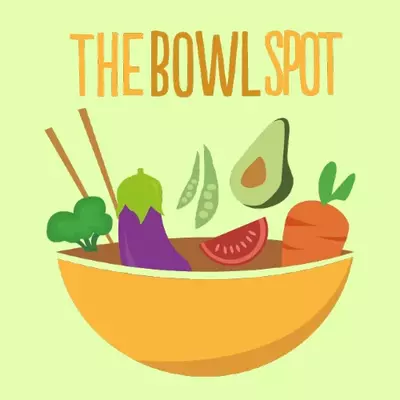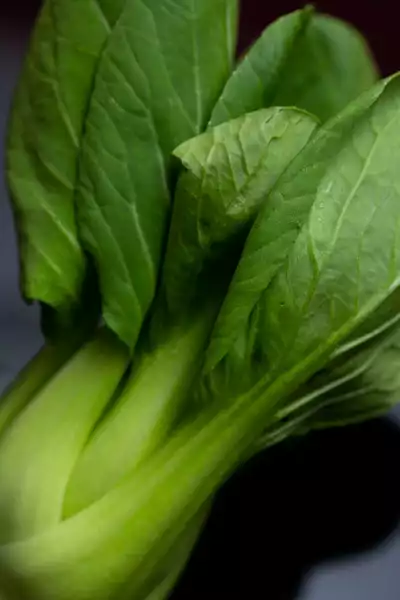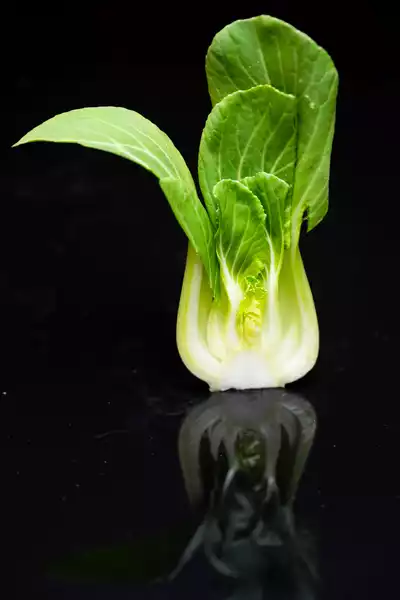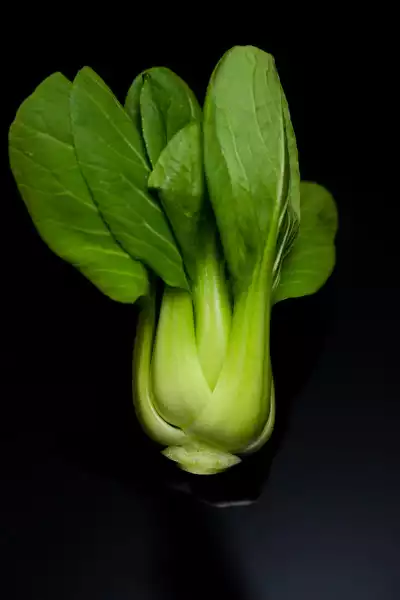Pak Choi 小白菜
Pak Choi
Pak Choi, auch Pak Choy, Pok Choi bzw. im Deutschen Chinesischer Senfkohl or Chinesischer Blätterkohl (Brassica rapa subsp. chinensis) genannt, ist ein naher Verwandter des Chinakohls. Er bildet lockere Köpfe mit hellen Blattrippen. Die Blätter sind von dunklerem Grün, ähnlich denen des Mangolds.[2][3]
Der auch aus der Familie der Kreuzblütler stammende und somit verwandte Choisum (Brassica rapa subsp. parachinensis, 菜心, càixīn, Jyutping coi3sam1, englisch choy sum, choi sum) wird umgangssprachlich auch als Falscher Pak Choi bezeichnet.[4][5][6] Verwandt ist auch der Kai-lan (Brassica oleracea var. alboglabra).
Quelle: Wikipedia
.
What is pak choi?
Pak choi is a relative of Chinese cabbage and impresses with its digestibility and numerous vitamins. It is therefore particularly suitable for people with a sensitive stomach. With just 4 grams of carbohydrates per 100 grams, pak choi is low in calories and therefore ideal for diets or low-carb diets.
Does pak choi have an antibacterial effect?
Pak choi contains a considerable amount of vitamin A, which promotes eyesight and is essential for healthy skin. The mustard oils it contains not only counteract inflammation and bacteria, but are also regarded as germicidal, which means that infectious diseases can not only be prevented, but actively combated. The strengthening of the immune system is also supported by the high vitamin C content. The secondary plant substances flavonoids, phenols and chlorophyll protect our body cells from harmful influences.
Pak choi as a substitute for chard and spinach?
In direct comparison to chard and spinach, pak choi contains a much lower proportion of oxalic acid. This cannot be completely broken down, especially in people with impaired kidney function or who suffer from gout, which can lead to the formation of kidney stones more easily. Pak choi is therefore an excellent substitute for chard and spinach, especially for people who suffer from gout or impaired kidney function.



